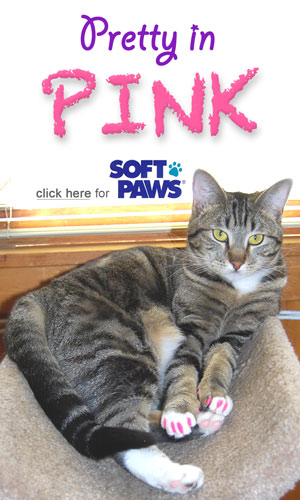VCA Clinics Prohibit Declaw Surgeries

On February 21, 2020, VCA (Veterinary Clinics of America) announced that they would no longer perform cat declaw surgeries in any of their clinics. VCA is a corporate veterinary clinic model with franchise clinics throughout the US and a few in Canada.
Why Did VCA Ban Declaws?
VCA's press release regarding the prohibition on declaws in their clinics stated that it was their motive to help people provide safe homes for cats where they can indulge in their instincts (you can see the press release here).
Scratching is a cat's instinct, and it plays a significant role in a feline's mental and physical health.
Not only that, but declaw surgeries are also extremely painful procedures with lots of potential complications, both short and long-term. And they're done for the benefit of the humans in the home, not for cats.
Why Do Cats Scratch?
Cats scratch for a few reasons, all of them essential to their physical and mental well-being:
- To exercise and stretch their toe, foot, leg, back, and neck muscles.
- To mark territory with visible and scent markers.
- To release pent-up energy and stress.
Cats need to scratch to stay healthy.
What Are the Side Effects of Declaw Surgeries?
The most immediate negative side effect of declaw surgery for cats is the pain. When a cat is declawed, they receive an amputation up to the first joint on each declawed toe. And cats are digitigrade animals. That means that they walk up on their toes, not on the balls of their feet like people do. So, when a cat wakes up from a declaw surgery, they must bear weight on 10-18 different amputation sites (depending on whether their front only or all four paws were declawed).
Along with the excruciating pain of declaw surgeries, they also carry a high risk of other side effects, long and short-term, like:
- Opening of the surgical sites.
- Infection of the surgical sites.
- Regrowth of abnormal claws that grow through the closed skin.
- Joint arthritis and chronic pain.
- Behavior changes like increased biting, timidness, and inappropriate urination.
Follow a kitten through a declaw surgery to learn more: "Walk Through a Declaw Surgery with a Kitten."
What Else Can You Do for Cat Scratching Problems?
Luckily, you don't have to declaw your cat to get them to stop scratching unwanted items in your home. You have other options.
Primary among those is giving the kitty appropriate items to scratch that the cat likes to scratch. That means knowing what cats like in a good scratching post, which is:
- Sturdiness. Cats don't want to lean on a post and have it wobble.
- Height. Cats want to stretch their whole body up against a post and have a good scratch.
- Covered in a good scratching material. Cats want a sturdy material that doesn't catch their claws when they scratch. They love sisal fabric (not sisal rope) and heavy corrugated cardboard the best.
- Placed in good spots. Cats want to scratch things in high-traffic areas of the home because they want to mark territory. That means they want other animals and humans in the house to see their scratch marks.
Getting a variety of good quality scratching posts and placing them in prime spots around your home can automatically decrease your cat's desire to scratch things you don't want to be scratched. Learn more: "Choosing the Best Cat Scratching Post."
Soft Paws claw caps are another solution to cat scratching. These are vinyl caps that fit over your cat's claws and keep them from damaging scratched items.
Additionally, doing what you can to decrease your cat's stress can go a long way toward eliminating problem cat scratching in your home. Here are ways for you to do that:
- Use Feliway, which is a substance that mimics the calming pheromone that cats produce.
- Increase interactive playtime with your cat. That lets him get out pent-up energy and exercise his hunter instincts, which reduces stress.
- Manage multi-cat problems by making sure you have enough of all great cat resources (clean litter boxes, scratching posts, food and water bowls, and cozy cat beds) to go around.
Declaw Bans Are Increasing
VCA isn't the only entity to prohibit cat declawing, and they won't be the last. New York state has banned the practice, as have many US cities and principalities, cities, and countries.
Veterinary professionals around the world increasingly understand that declawing is inhumane and unnecessary.





